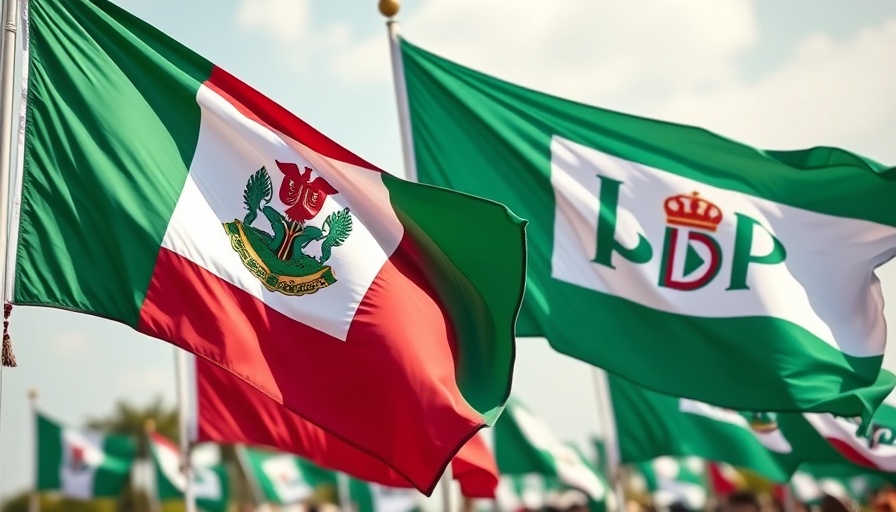
The Tensions Behind Edo State's Upcoming By-Election
In the vibrant political landscape of Edo State, the upcoming by-election scheduled for August 16 has stirred intense discussions among political figures and citizens alike. The clash between the All Progressive Congress (APC) and the People's Democratic Party (PDP) raises crucial questions about governance, election integrity, and the future political landscape of Nigeria. As evident from the televised discussions on Politics HQ on News Central Television, both parties are navigating a complex web of allegations, dissent, and aspirations.
In APC and PDP Clash Over Edo By-Election, the discussion dives into urgent electoral integrity issues and political strategies, prompting a deeper analysis of governance struggles within the state.
Dysfunction in Governance: A Point of Contention
Addressing the current state of governance, the APC representatives argue for the competence of their party and its candidates, juxtaposed against the perceived failures of the PDP. Honorable Shedra Dubai from the PDP vehemently accused the current administration of being clueless, asserting that disenchantment among the Edo populace is rooted in an undelivered governance promise. The APC's Barista Advente Amata, however, counters these claims by highlighting a historical narrative where the opposition party grapples with corruption and inefficacy. This tug-of-war exemplifies the ongoing struggle over public perception, an endeavor critical to influencing voter sentiment ahead of the polls.
Corruption and Electoral Fairness: A Battleground of Claims
The debate over the perceived unfairness of the electoral process has taken center stage, especially regarding the role of the state’s electoral officer. Accusations of electoral malpractice echo loudly, as Dubai cites past elections as marred by collusion between election officials and security agencies. This distrust in electoral integrity poses a serious challenge to both candidates and voters, as faith in the democratic process is essential for a fair election. The calls for a replacement of the electoral officials speak to a deeper issue of transparency and credibility that borders on existential for the parties involved.
Factionalism Within the PDP: Impeding Progress?
Interestingly, the internal strife within the PDP complicates its standing in the election. With allegations of factionalism and leadership crises permeating party ranks, Barista Amata emphasizes that these divisions weaken the party's electoral strength. As political analysts note, factionalism could jeopardize the party's efforts to mobilize votes and create a conducive environment for fair elections. The inability of the PDP to present a united front stands in stark contrast to the APC’s strategies, where they are keen to project stability and coherence.
The Role of the Youth in Politics: New Voices Emerging
As the political discourse evolves, the youth of Edo State are increasingly occupying spaces in the electoral conversation. They are no longer passive spectators but active participants advocating for transparency, equity, and improved governance. As seen in stakeholder dialogues, youth groups have started to challenge the status quo, demanding accountability from established political players. This shift not only represents a generational change but also indicates a pivotal moment in Nigerian politics, where fresh perspectives can reshape traditional political narratives.
Looking Ahead: The Future of Governance and Electoral Integrity
As the date of the by-election approaches, the discourse surrounding electoral integrity, party competence, and citizen responsibility remains critical. Ensuring a level playing field will require commitment not only from political parties but also from citizens who seek to engage constructively with the political process. The developments in Edo State offer vital lessons in accountability and governance, encouraging a reevaluation of democratic practices and citizens' roles in shaping their political destiny.
As the political contest heats up, the existing geopolitical climate in Nigeria reflects the challenges pervasive across the African continent. Observers and stakeholders alike should remain vigilant in monitoring these developments, enabling informed discourse and engagement in local governance. The unfolding events are not just pivotal for Edo; they resonate deeply within the broader narratives of electoral politics across Africa.
 Add Row
Add Row  Add
Add 


Write A Comment